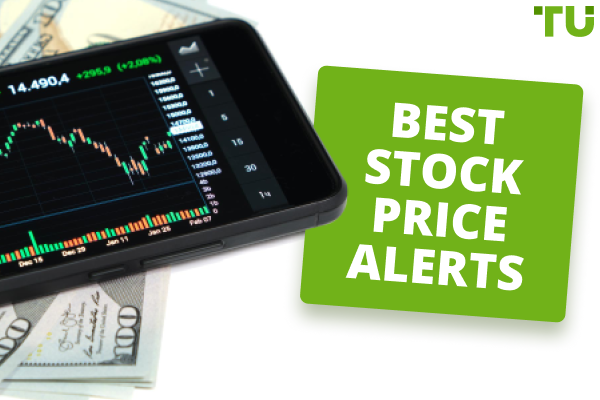When and How to Trade Stocks on the Pre-Market?

Top commission-free stock broker - eToro
Pre-market hours local time for the US, UK, and Europe:
-
US: NYSE, NASDAQ - 4:00 AM – 9:30 AM Eastern Time (ET)
-
UK: London Stock Exchange - 5:05 AM – 7:50 AM, Greenwich Mean Time (GMT)
-
EU: Euronext - 7:15 AM – 9:00 AM, Central European Time (CET)
Pre-market trading hours refer to buying and selling securities before the regular market session begins, which starts at 4:00 a.m. EST and ends at 9:30 a.m. EST. This period allows investors to react to sudden news developments or earnings reports, often released outside regular trading hours.
-
What is the meaning of pre-market?
Pre-market refers to the period of short trading activities before the stock market officially opens.
-
Can we buy or sell in the pre-open market?
Yes, investors can buy and sell stocks in the pre-open market session.
-
Is pre-market trading profitable?
Trading during a pre-open market session allows investors to respond to news and events, which may turn out profitable. However, there is no guarantee of making profits from pre-market trading.
-
Is it better to buy pre-market or at open?
Buying a stock during a pre-market session sometimes offers more favorable prices than during the official market opening, which may yield early bird profits. However, investors should understand that pre-market hours often have low liquidity and high volatility, which may impact trading.
What is the Pre-Market, and How Does it Work?
Pre-market trading typically occurs at 4:00 a.m. EST on weekdays before the regular trading hours commence. During the pre-market trading hours, investors can place limit orders, market orders, and other advanced types of orders, such as stop orders and stop-limit orders permissible by the broker.
Furthermore, trading activities during pre-market hours are executed through electronic communication networks (ECNs) or alternative trading systems (ATSs), which match buy and sell orders from investors outside the regular trading hours.
However, it is worth noting that not all brokerage firms support pre-market trading. So, investors should ensure that their broker of interest supports premarket trading.
Best stock brokers
Factors Influencing Pre-market Trading
Let’s consider some of the salient factors that influence pre-market trading activities:
-
Earning Report: Companies often release their corporate earnings reports quarterly or annually before the regular trading session. Such financial reports, positive or negative, can significantly impact the movement of stock prices during pre-market trading hours
-
Economic Data Releases: Another contributing factor to pre-market trading is the release of economic indicators such as GDP figures, inflation data, unemployment reports, and consumer survey reports. Strong or weak economic data can also impact investor sentiment and stock direction before the official trading hours
-
Global Events: Events such as political instability, geopolitical tensions, central bank decisions, or economic developments around the world can impact investor sentiment and drive trading activities during pre-market sessions
-
Corporate News and Announcements: Finally, sudden news related to company acquisitions, big partnerships, mergers, legal issues, etc., can also influence pre-market trading
The Pre-Market Hours
The pre-market trading hours vary based on time zones. It is worth noting that pre-market hours can vary depending on exchange policies, weekends, the transition between standard time and daylight saving time, and broker-specific terms and conditions (for example, TD Ameritrade allows pre-market trading starting from 7:00 AM ET).
So, here is a general overview of the Pre-market hour’s local time for different stock markets:
| Stock Market | Pre-Market Hours (Local Time) |
|---|---|
US: NYSE, NASDAQ |
4:00 AM – 9:30 AM Eastern Time (ET) |
UK: London Stock Exchange |
5:05 AM – 7:50 AM, Greenwich Mean Time (GMT) |
EU: Euronext |
7:15 AM – 9:00 AM, Central European Time (CET) |
Australia: ASX |
7:00 AM – 9:59 AM, Australian Capital Territory (ACT) |
Japan: Tokyo Stock Exchange |
8:00 AM – 9:00 AM, Japan Standard Time (JST) |
India: Bombay Stock Exchange |
9:00 AM – 9:15 AM, India Standard Time (IST) |
How Pre-Market Trading Affects Stock Prices
Pre-market trading can affect stock prices in several ways. One of the possible impacts of pre-market trading on stock is price discovery, which results from the reaction of investors to sudden news and events. Such reactions can potentially change stock prices due to supply and demand dynamics.
Additionally, not all investors participate in pre-market trading sessions. Hence, this limited participation means that the actions of a small group of investors during the pre-market hours may not fully reflect the broader market sentiment when regular trading activities commence.
Furthermore, trading activities during pre-market sessions can have a significant impact on the opening price of the regular trading hours. For example, if there is significant buying or selling pressure during the pre-market session, it can lead to a price gap between the closing price of the previous day and the opening price of the next day.
Pros and Cons of Pre-Market Trading
To trade during pre-market hours, you need to have an account with a broker that allows you to participate in the pre-market activities. While pre-market trading offers numerous benefits, it also comes with certain risks. Let’s consider the merits and demerits of pre-market trading below:
👍 Advantages Explained
• Early Positioning: Pre-market trading hours allow investors to react quickly to an overnight news release instead of waiting for the regular trading hours. This edge gives investors and traders a potential advantage, such as buying stock at favorable prices, for instance, based on early information
• Flexibility: Another merit of pre-market trading is that it offers traders a convenient and flexible means of trading, regardless of their tight schedules. Traders and investors who are busy during regular trading hours can buy or sell stocks of interest during the pre-open market sessions
👎 Disadvantages Explained
• Lower Liquidity: Pre-market trading hours typically experience low trading volumes due to limited participation, which can result in wider spreads and slippage. So, executing trades at the desired prices can be challenging during pre-market trading hours
• Higher Volatility Risk: The market volatility tends to increase during pre-market trading hours. However, the heightened volatility may not reflect the true market sentiment when the regular trading hour begins. Therefore, pre-market trading may increase the chances of making bad investment decisions, potentially incurring losses
Which Brokers Allow Pre-Market Trading?
Pre-market trading was limited to institutional investors, market makers, and non-net-worth individuals. However, these biases and restrictions have changed due to the evolution of electronic trading networks in the financial trading industry. This evolution has caused more brokers to offer extended trading hours, which allows retail investors to buy and sell available stocks during pre-market trading hours.
How to obtain pre-market hours trading?
Typically, you need to have an account with a brokerage firm that supports pre-market trading to participate during the trading session. So, here is how you can have access to pre-market trading hours:
-
Choose a brokerage firm that offers pre-market trading access
-
Open a trading account with the broker and verify your identity. Fund your account afterward
-
Carefully read the broker’s rules and restrictions (if there are any) on pre-market trading
Here’s a list of top online brokers recommended by Traders Union that support pre-market trading activities:
| Broker | Description |
|---|---|
TD Ameritrade is a moderate-risk broker with an overall Trader Union score of 6.8 out of 10. It attracts no fees for trading in American and Canadian stocks.The software is only available to US and CANADA residents |
|
Reliable broker with an overall Trader Union score of 7.15 out of 10. No initial deposit is required when opening a brokerage account for stock exchange trading |
|
One of the top US investment companies for stock, CFDs, indices, etc., trading. It has an overall Traders Union score of 7.45 out of 10 |
|
One of the best brokers for stocks, options, ETFs, and ADRs trading. Webull has an overall Traders Union score of 7.09 out of 10. Access for trading on the pre-market is paid |
Tips for Trading Stock on the Pre-Market
Here are some tips for trading stocks in the pre-market hours:
-
Consider using limit orders instead of market orders to control the price at which trades are executed
-
Use pre-market data available on the brokerage firm or external websites for objective analyses of the market sentiment and potential direction for the regular trading hours
-
Set stop-loss orders to mitigate potential losses
Conclusion
The pre-market trading hours allow investors early trading opportunities to capitalize on early market movement before the official trading hours commence. While pre-market trading can offer advantages such as early positioning, flexibility in trading, etc., it also comes with risks, including lower liquidity and increased volatility, which could impact trading outcomes. Therefore, investors should approach pre-market trading with caution, careful planning, research, and risk management.
Team that worked on the article
Joshua Francis is a professional Forex trader with 4+ years of experience in the financial industry. He trades the XAU/USD and GBP/JPY pairs. He is also a ghostwriter and author for Indicatorspot and Traders Union, where he puts his intensive research skills and deep knowledge of the financial markets into freelance writing.
Dr. BJ Johnson is a PhD in English Language and an editor with over 15 years of experience. He earned his degree in English Language in the U.S and the UK. In 2020, Dr. Johnson joined the Traders Union team. Since then, he has created over 100 exclusive articles and edited over 300 articles of other authors.
The topics he covers include trading signals, cryptocurrencies, Forex brokers, stock brokers, expert advisors, binary options. He has also worked on the ratings of brokers and many other materials.
Dr. BJ Johnson’s motto: It always seems impossible until it’s done. You can do it.
Mirjan Hipolito is a journalist and news editor at Traders Union. She is an expert crypto writer with five years of experience in the financial markets. Her specialties are daily market news, price predictions, and Initial Coin Offerings (ICO). Mirjan is a cryptocurrency and stock trader. This deep understanding of the finance sector allows her to create informative and engaging content that helps readers easily navigate the complexities of the crypto world.












